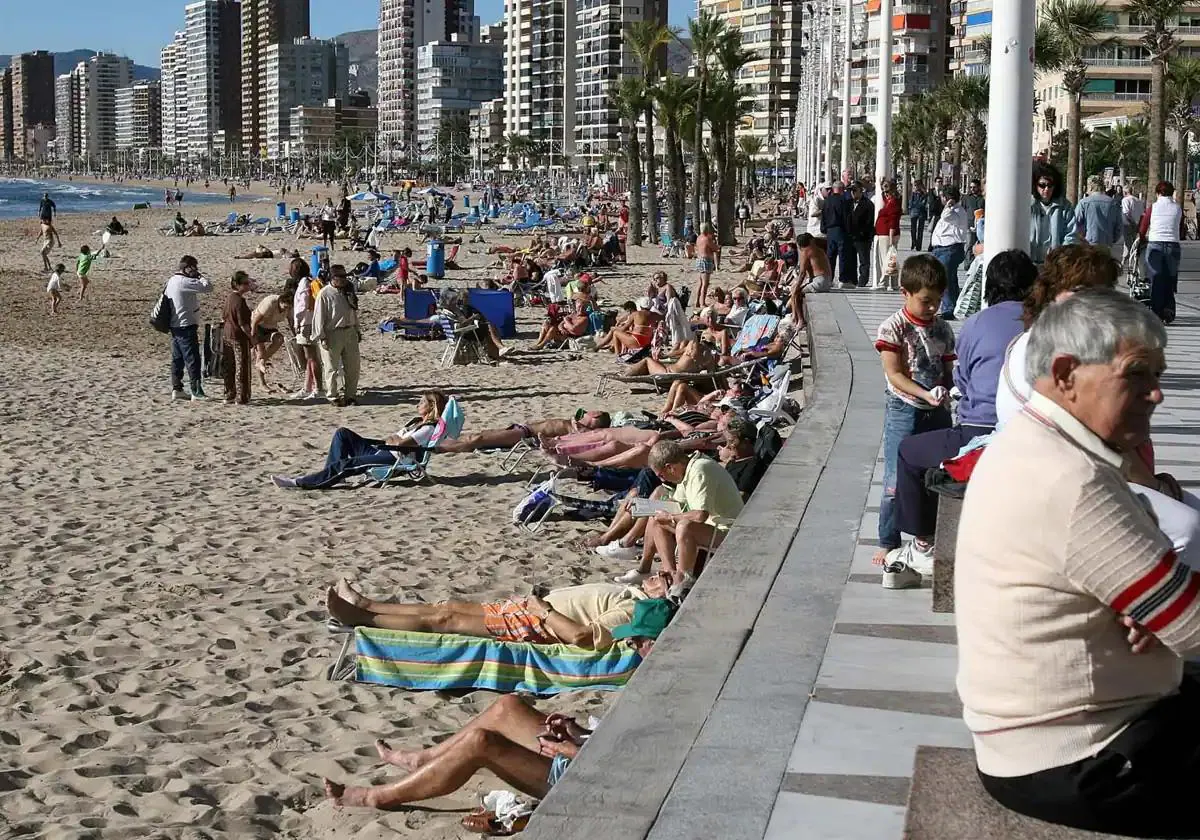Spain takes one of top slots in Europe for those resigned to climate change
One in four of the population in the country, especially younger people, believe that it is out of control and it is too late to slow it down or prevent the damage it causes
Giving up hope in the face of climate change is increasing in Spain, and at a remarkable rate. It is growing to the point that the percentage of Spanish 'doomers', the people who think global warming cannot be stopped, is among the highest in Europe. This crops up every year when, on 22 April (International Earth Day), a census is taken to monitor how people's perceptions are changing with regard to the threat of global warming in 33 countries across five continents.
The majority of Spain's population continues to support the plans and measures that seek to curb as far as possible the greatest current risk to life on Earth. However, apathy is increasing, there are more people now who see no harm in throwing their hands up in despair in the face of what they consider to be an inevitability. Pessimists have been growing steadily in number over the last three years, especially in the last twelve months. According to the Ipsos poll, 25% of people in Spain, one in four, believe that climate change is out of control and that it is too late to slow it down or prevent the damage it causes. In fact, the level of Spanish climate fatigue is so high that in Europe it is only exceeded by the French, and then only by a tiny 1% (26%).
Those who think that Spain should do more and go further in the fight against climate change account for 62%, but that is a five-point drop in the last year. While it seems that the majority remain engaged, it is disturbing to learn that almost a third think the contrary - i.e. that the country, its industrial fabric and its inhabitants are being asked to make too many sacrifices to combat global warming.
Compromise with inaction
But the block of questions that best illustrates the rapid advance of those willing to throw in the towel is the one that measures whether people think that those who fail to act on climate change are failing everyone else. While a majority still agrees with that statement, that figure has declined year on year since 2022, with an average drop of 16% over the last two years.
Those who criticise national, regional or local leaders for not being ambitious enough in this fight have fallen from 70% in 2022 to 59% this year (the poll is conducted between January and February with results published on 22 April). This drop is identical to that of those who think that companies that do not commit to fighting global warming are failing employees and customers. There is a similar decline in those who believe that individuals who do nothing on a day-to-day basis to reduce greenhouse gas emissions are betraying future generations, from 73% to 61%, down twelve points within two years.
The growth of climate doomers is much more pronounced among men than women in Spain and, even more worryingly, this trend is especially prevalent among the younger age groups. Among those who believe that a climate catastrophe is already inevitable no matter what, it is the millennials - those in their thirties - who stand out. Twenty-eight per cent of them subscribe to this view, three points above the average. In fact, they are nine points more resigned to climate catastrophe than their parents or grandparents, the baby boomers, among whom only 19% are pessimistic.
More confident parents and grandparents
But the question that most clearly illustrates how much young people in Spain have given up is the one that asks you to say whether you agree that, just by making small changes in our daily lives, we can make a big impact on climate change. The effectiveness of personal commitment is supported by 70% of the women and 60% of the men in Spain, but where the differences really show is in the age comparison.
Baby boomers, the post-war generations aged 60 to 78, are 76% in favour of the value of everyday actions, compared to only 43% of Generation Z (or zoomers), those in their twenties, making them 33 points more sceptical. Moreover, 26% of the polled male population and 25% of male 20-somethings argue that there is no point in changing their behaviour to tackle climate change because it won't make any difference anyway. This pessimistic view is shared by only 16% of the female population and the same goes for the baby boomers.

